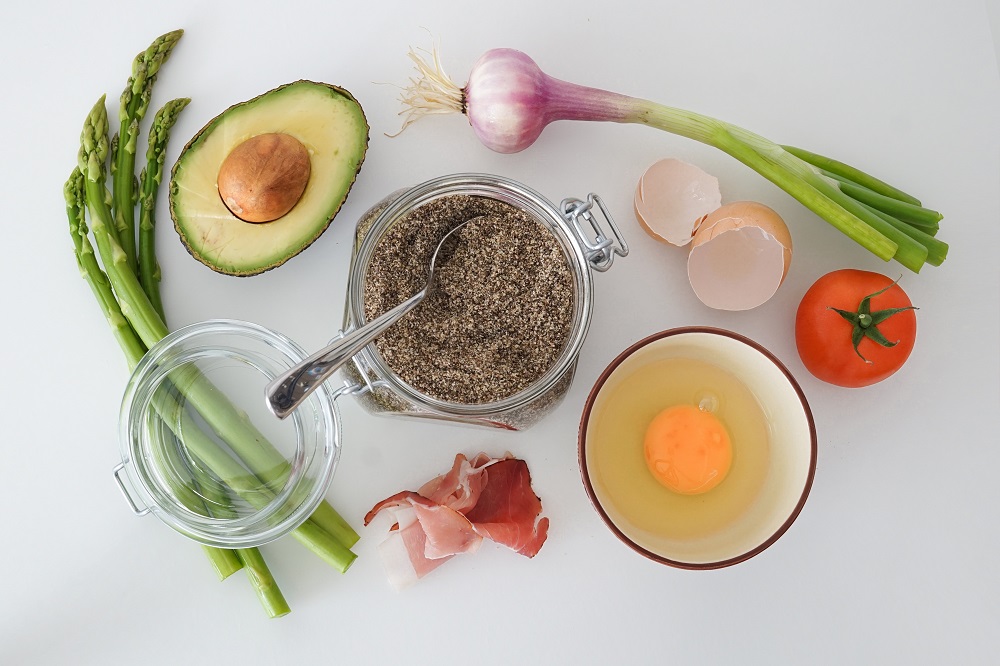Prebiotics. Hmm. Are you sure you don’t mean probiotics, you might ask. But no. I do mean prebiotics. Probiotics, we know, are mostly fermented products that help increase the diversity and versatility of your gut flora. You know, those beneficial bacteria that live in your digestive system that you don’t see but are very grateful for.
So what are prebiotics? Just apply the same logic to them as you would with “pro-biotics”. Probiotics are pro living microorganisms like bacteria, and pre-biotics are those foods that are food for these helpful microflora. Isn’t that amazing? A kind of a food ecosystem for those friendly bacteria in your belly! That is to say, prebiotics are the foods that allow, nay, help probiotics do their work.
Confused? Let me come at this in a different way. Generally speaking, prebiotics are foods and ingredients that induce the growth of friendly microorganisms in your digestive system. Bacteria and fungi feed on these foods to derive their energy, and then the probiotics that we eat keep them healthy. These are primarily non-digestible fiber (think vegetables) that pass through the upper gastrointestinal tract undigested and are egested out. (I know. Eww.)
Fiber has the rather unenviable task of regulating your digestion, carrying out unwanted cholesterol, and keeping your gut healthy. For centuries, the first principle prescribed when asked to go on a diet is: eat more fiber. Now you know the reason. Of late, resistant starch is also gaining recognitionas a prebiotic food. (Think green bananas, legumes, chia seeds, flax seeds.) To keep those bacteria smiling, nutritionists recommend anywhere between 5-20 grams of prebiotics in your daily diet. For those with good digestive systems, 5-10 grams is the daily recommended intake. But for those with digestive disorders like chronic constipation, the limit is higher.
Here is a list of prebiotic foods that you must incorporate into your lifestyle, whatever your diet.
- Jerusalem Artichokes
- Dandelion greens
- Raw garlic/onion/leek
- Cooked onion
- Asparagus
- Legumes like black beans, kidney beans, garbanzo beans, etc.
- Chia seeds
- Flax seeds
- Raw banana
- Wheat or oat bran
- Whole grains
- Milk (Has a prebiotic called Lactulose)
- Raw Chicory (Get your neighbourhood coffee place to grind some up in your coffee next time.)
- Mung bean
- Raw jicama
- Apples
- Crucifers like cabbage, kale, broccoli, kolrabi, cauliflower, etc.
Adding prebiotics to your diet will help your health improve in various ways. Here are the top four:
- Improved Gut Health: We’ve covered this already. But in case you need more info: stronger intestinal lining. Better electrolyte absorption and regulation. The fiber in these act as binding agents, preventing both constipation and diarrhea. Guard against intestinal conditions like Crohn’s disease and ulcerative colitis. Prevention of and protection from irritable bowel syndrome. Ditto with leaky gut syndrome.
- Boosted Immunity: As digestion improves, your intestinal lining becomes healthier, and the prebiotics carry out bad cholesterol as food exits your system, you begin to develop better immunity against chronic infections. Prebiotics actively act promote healthier pH in the intestines, and are also being researched as a potential prevention mechanism for cancer.
- Anti-inflammatory Benefits: We’ve touched upon the fact that high-fiber foods are essential for their anti-inflammatory properties in another blog post. As inflammation inside the body reduces, your biomarkers improve, lowering your risk of heart disease, arthritis, fatty liver disease, metabolic syndrome, insulin resistance, etc. High fiber foods are anti-obesogenic and help prevent infections caused by inflammation and insulin resistance like candida.
- Nature’s Anti-Depressants: As chronic inflammation improves and digestion improves, so will your skin, hair, and your levels of happy hormones. Prebiotics help in regulating hormones. Think of the last crash you had after a sugar binge. This is the stark opposite of that. An overall sense of well-being, increased awareness of the body, better communication with your body, and improved metabolism all contribute to greater endorphin release. Research now shows that prebiotics have significant impact on neurobiological function, promoting healthier levels of feel-good hormones and reduced levels of cortisol and response to stress in the human body.
You know what they say. Knowledge is power. So the next time you say grace before a meal, reach for the artichoke or asparagus spears or hummus without guilt. And pat your belly and say to the friendly gut flora proliferating in your intestine as you eat: Go forth and multiply.

